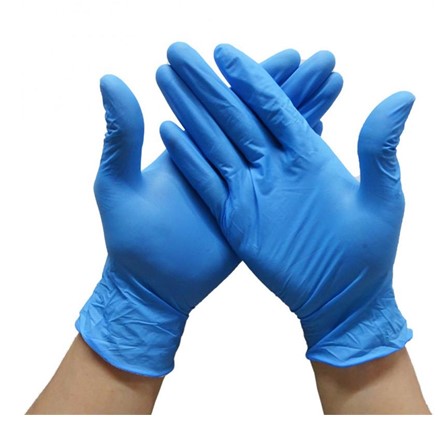Nutrition of astronauts. Scientist talks about starters for a balanced diet

Photo is illustrative in nature. From open sources.
"Roscosmos" April 12, Minsk . 64 years ago, the whole world watched with bated breath the first manned flight into space. For residents of the post-Soviet space, this day is still a source of pride. Almost everyone knows that on April 12, 1961, Soviet cosmonaut Yuri Gagarin flew into near-earth orbit on the Vostok spacecraft. Every child at that time and for many years after dreamed of becoming an astronaut, and there are still many of them today. The historical and scientific significance of space flights is clear and understandable, proven by repeated expeditions.Many people are interested in how astronauts eat in orbit. Obviously, the conditions of a person's stay in space dictate certain requirements both for the diet in general and for the products included in it. A BELTA correspondent discussed this topic with Natalia Zhabanos, head of the biotechnology department of the Institute of Meat and Dairy Industry, scientific director from Belarus of the Russian-Belarusian target work "Study of the properties of microorganisms and their consortia to create a complex product for maintaining human microbiota in space flight conditions" ("PROXIBIOTIC").
Every day, a person in orbit needs a lot of water, food and oxygen. But the team consists of several astronauts and the flight can last for more than one month. Therefore, a special approach to organizing nutrition is required. Scientists , technologists and engineers are working to ensure that the astronauts' diet is as healthy as possible . They try to make the menu varied, taking into account even the peculiarities of the national cuisine. The head of the biotechnology department notes that a long stay in space brings its own changes to the human body, and this factor is taken into account in the work on the diet of astronauts. "The scientific literature cites the results of studies that have revealed changes in the intestinal microflora of astronauts during a long stay in space flight conditions, which are common for cases of human stay in extreme situations, while a decrease in the number of bifidobacteria and lactobacilli is a trigger for the development of dysbacteriosis," said Natalia Zhabanos. In Russia, for example, a lot of experience has been accumulated in creating products and formulating diets to support space flights and the work of astronauts on the International Space Station (ISS). "I think such research will be developed in connection with the prospects of creating a Russian orbital station, organizing flights to the Moon, lunar bases and interplanetary flights. In addition to a balanced basic diet for long-term space expeditions, there should be a range of additional special products that will allow maintaining and correcting the human microbiota. The creation of technologies for basic models of semi-finished products for the possibility of producing fresh fermented milk products with a complex of probiotics in an active state during space flights is one of the solutions for expanding the diets of astronauts," the head of the department noted.
"The Proxibiotic project, implemented by the Institute of Meat and Dairy Industry together with the Institute of Medical and Biological Problems of the Russian Academy of Sciences, conducted biotechnological experiments in the ISS with cultures of probiotic microorganisms isolated and studied in Belarus. For the first time, data were obtained on the safety and properties of strains of lactic acid microorganisms and bifidobacteria isolated and studied in our country, as well as their combinations in a state of anabiosis and after cultivation in space flight conditions. Technologically significant and medical and biological characteristics, indicators of biochemical activity of strains and combinations of samples exposed to similar conditions in a ground and space experiment after the return of samples from the ISS to Earth," she explained.
Natalia Zhabanos emphasized that the main goal of the completed and planned scientific work is to create a complex fermented milk product to maintain human microbiota in space flight conditions. Based on the results of the conducted research, unique combinations were developed based on terrestrial cultures, which became the basis for the starter cultures of probiotic microorganisms "ProxyMilk", which included strains of lactic acid and bifidobacteria, which were studied in a series of space experiments.
"The starter cultures can be directly consumed in food to maintain the level of beneficial intestinal microflora. A study was conducted on the effect of taking the dry starter culture "ProxyMilk" on the species diversity of the microbiota of test subjects in the annual international isolation experiment SIRIUS-23. In the study, six test subjects took the dry starter culture for 30 days, dissolving it in a small amount of water or washing it down with water, which had a positive effect on the level of beneficial microflora in the gastrointestinal tract," shared Natalia Zhabanos. She also said that using the "ProxyMilk" starter culture, milk can be fermented at home to obtain a fermented milk product containing 16 strains of ten types of probiotic microorganisms in an active state.
Specialists at the Institute of Meat and Dairy Industry are conducting research into the creation of industrial technologies for fermented milk products with probiotic microorganisms, the stability of whose beneficial properties has been tested in a space experiment.
Every day, a person in orbit needs a lot of water, food and oxygen. But the team consists of several astronauts and the flight can last for more than one month. Therefore, a special approach to organizing nutrition is required. Scientists , technologists and engineers are working to ensure that the astronauts' diet is as healthy as possible . They try to make the menu varied, taking into account even the peculiarities of the national cuisine. The head of the biotechnology department notes that a long stay in space brings its own changes to the human body, and this factor is taken into account in the work on the diet of astronauts. "The scientific literature cites the results of studies that have revealed changes in the intestinal microflora of astronauts during a long stay in space flight conditions, which are common for cases of human stay in extreme situations, while a decrease in the number of bifidobacteria and lactobacilli is a trigger for the development of dysbacteriosis," said Natalia Zhabanos. In Russia, for example, a lot of experience has been accumulated in creating products and formulating diets to support space flights and the work of astronauts on the International Space Station (ISS). "I think such research will be developed in connection with the prospects of creating a Russian orbital station, organizing flights to the Moon, lunar bases and interplanetary flights. In addition to a balanced basic diet for long-term space expeditions, there should be a range of additional special products that will allow maintaining and correcting the human microbiota. The creation of technologies for basic models of semi-finished products for the possibility of producing fresh fermented milk products with a complex of probiotics in an active state during space flights is one of the solutions for expanding the diets of astronauts," the head of the department noted.
"The Proxibiotic project, implemented by the Institute of Meat and Dairy Industry together with the Institute of Medical and Biological Problems of the Russian Academy of Sciences, conducted biotechnological experiments in the ISS with cultures of probiotic microorganisms isolated and studied in Belarus. For the first time, data were obtained on the safety and properties of strains of lactic acid microorganisms and bifidobacteria isolated and studied in our country, as well as their combinations in a state of anabiosis and after cultivation in space flight conditions. Technologically significant and medical and biological characteristics, indicators of biochemical activity of strains and combinations of samples exposed to similar conditions in a ground and space experiment after the return of samples from the ISS to Earth," she explained.
Natalia Zhabanos emphasized that the main goal of the completed and planned scientific work is to create a complex fermented milk product to maintain human microbiota in space flight conditions. Based on the results of the conducted research, unique combinations were developed based on terrestrial cultures, which became the basis for the starter cultures of probiotic microorganisms "ProxyMilk", which included strains of lactic acid and bifidobacteria, which were studied in a series of space experiments.
"The starter cultures can be directly consumed in food to maintain the level of beneficial intestinal microflora. A study was conducted on the effect of taking the dry starter culture "ProxyMilk" on the species diversity of the microbiota of test subjects in the annual international isolation experiment SIRIUS-23. In the study, six test subjects took the dry starter culture for 30 days, dissolving it in a small amount of water or washing it down with water, which had a positive effect on the level of beneficial microflora in the gastrointestinal tract," shared Natalia Zhabanos. She also said that using the "ProxyMilk" starter culture, milk can be fermented at home to obtain a fermented milk product containing 16 strains of ten types of probiotic microorganisms in an active state.
Specialists at the Institute of Meat and Dairy Industry are conducting research into the creation of industrial technologies for fermented milk products with probiotic microorganisms, the stability of whose beneficial properties has been tested in a space experiment.




























































